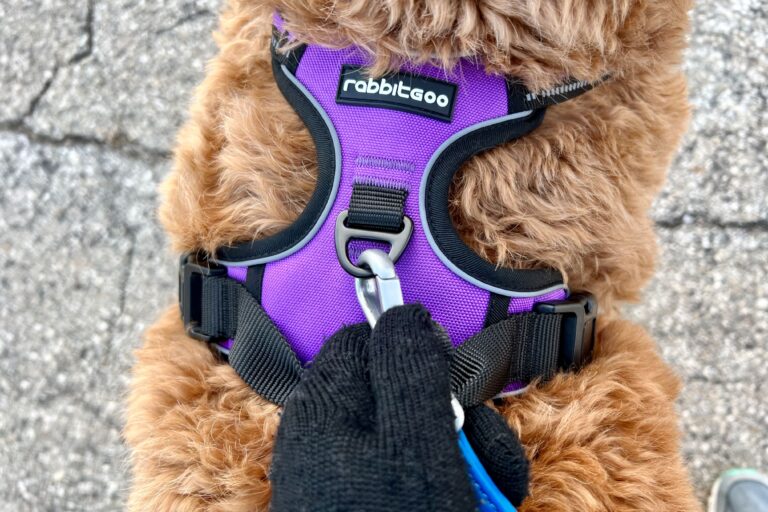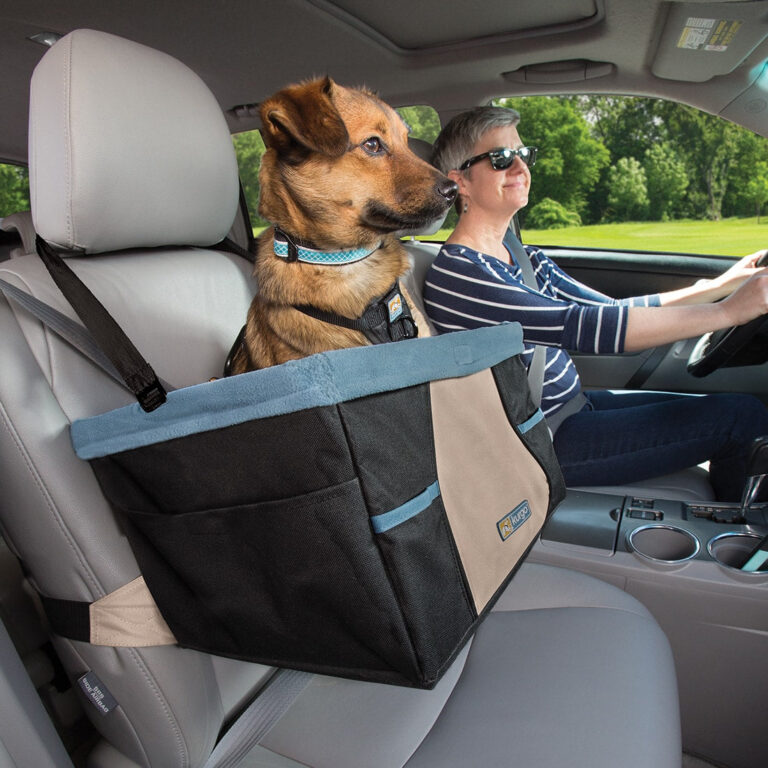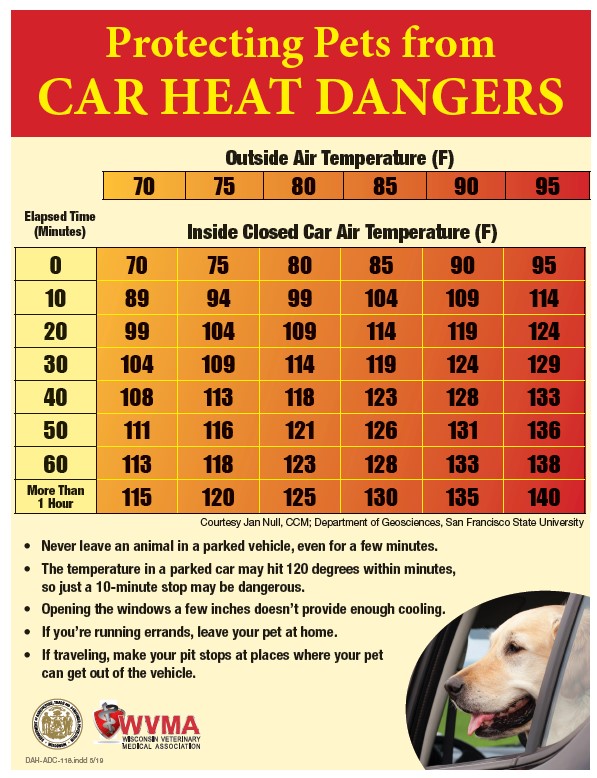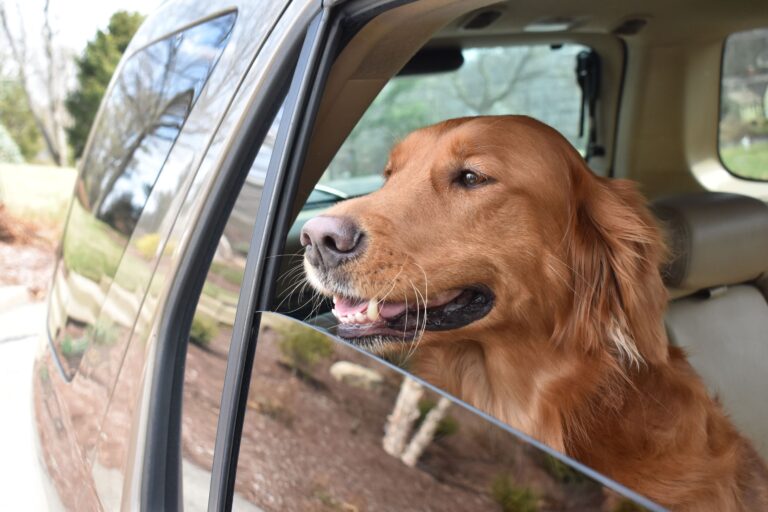Do Most Dogs Outgrow Car Sickness? Unveiling the Truth
Most dogs do outgrow car sickness as they mature. Some dogs may continue to experience symptoms throughout their lives.
Car sickness in dogs is a common issue, especially in puppies. It often stems from their underdeveloped inner ear structures, which are responsible for balance. As dogs grow older, these structures mature, reducing the likelihood of car sickness. Symptoms include drooling, vomiting, and restlessness.
Ensuring a comfortable travel environment, such as using a crate or seatbelt harness, can help alleviate these symptoms. Gradual exposure to car rides and positive reinforcement can also aid in overcoming car sickness. If the problem persists, consult a veterinarian for advice and possible medications. Understanding and addressing car sickness can make travel more enjoyable for both you and your dog.
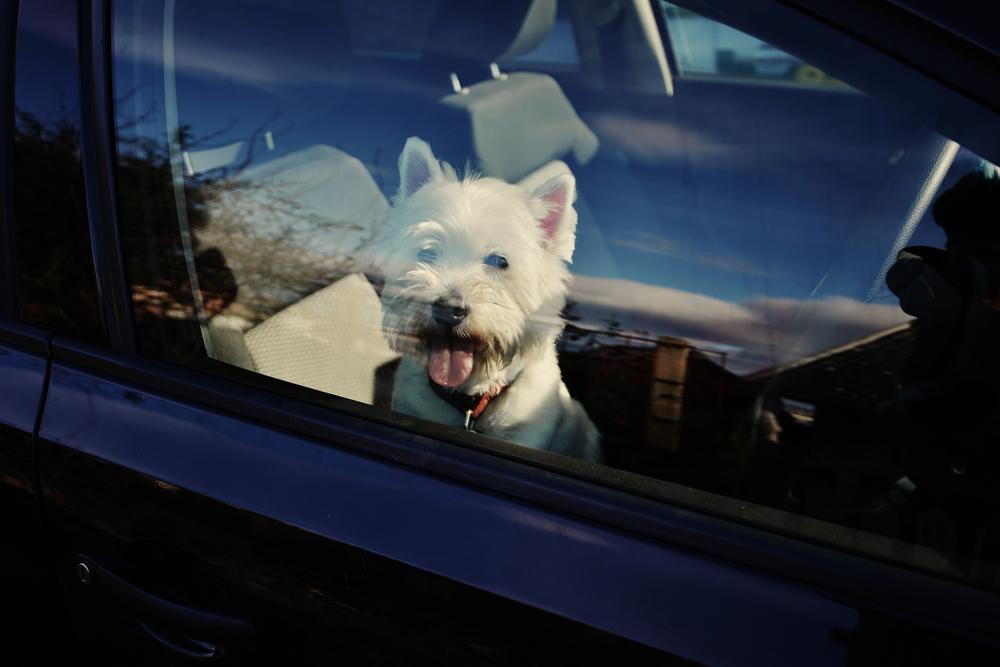
Credit: lagunapetvet.com
Canine Car Sickness: A Common Concern
Many dog owners face the challenge of canine car sickness. This issue can make car rides stressful for both dogs and owners. Understanding the symptoms and factors can help manage and reduce this problem.
Symptoms Of Motion Sickness In Dogs
Dogs show various signs when they suffer from car sickness. Recognizing these symptoms is key to providing relief.
- Excessive drooling
- Whining
- Restlessness
- Yawning
- Vomiting
Factors Contributing To Canine Car Sickness
Several factors contribute to car sickness in dogs. Knowing these can help you address the problem effectively.
| Factor | Explanation |
|---|---|
| Age | Puppies are more prone to car sickness. They often outgrow it with age. |
| Anxiety | Stress and anxiety can trigger motion sickness in dogs. |
| Inner Ear Development | The inner ear controls balance. Puppies’ inner ears are still developing. |
| Previous Experiences | Negative past car rides can make dogs anxious and sick. |
By understanding these factors, dog owners can take steps to help their furry friends enjoy car rides. This knowledge helps in making travel a positive experience.
Puppyhood And Motion Sickness: Is There A Link?
Many puppies experience car sickness during their early months. This can be distressing for both the puppy and the owner. Understanding the link between puppyhood and motion sickness can help in managing and potentially overcoming this issue.
Developmental Aspects Of Car Sickness In Puppies
Puppies are more prone to motion sickness due to their developing bodies. Their inner ears, which help control balance, are not fully developed. This underdevelopment can make them more sensitive to motion.
Young puppies might not have strong neck muscles yet. This can cause them to feel more disoriented in a moving vehicle. As they grow, their muscles and inner ear functions improve.
| Age Group | Likelihood of Car Sickness |
|---|---|
| 0-3 months | High |
| 4-6 months | Moderate |
| 7+ months | Low |
The Role Of Balance And Vestibular System Maturation
The vestibular system is crucial for balance and spatial orientation. In puppies, this system is still maturing. The vestibular system consists of tiny structures in the inner ear. These structures help detect changes in motion and position.
As puppies grow, their vestibular system develops and becomes more efficient. This development helps them manage motion better. By around seven months, most puppies outgrow car sickness.
Owners can help by taking short, frequent car trips. Gradually increase the duration as the puppy gets older. This helps the puppy adapt to the motion of the vehicle.
- Start with short trips
- Gradually increase trip length
- Ensure the puppy is comfortable
In conclusion, while many puppies suffer from car sickness, they usually outgrow it as their bodies develop. Understanding the developmental aspects and supporting their vestibular system can make car rides more enjoyable for both the puppy and the owner.
Growth And Adaptation: The Journey To Tolerance
Many dog owners wonder if their pets will outgrow car sickness. This journey involves growth and adaptation. Dogs can learn to tolerate car rides with time and patience. Let’s explore how this process works.
How Dogs Acclimate To Car Rides Over Time
Most dogs start with some discomfort during car rides. Puppies are more prone to car sickness. Their inner ears are still developing. This can cause balance issues. As dogs grow older, their balance improves. They start feeling more comfortable in moving vehicles.
Training also plays a big role. Here are some tips to help your dog acclimate:
- Start with short trips around the block.
- Use positive reinforcement with treats and praise.
- Gradually increase the length of the rides.
- Ensure a comfortable space in the car for your dog.
These steps can make car rides less stressful for your furry friend.
Neurological Development And Motion Sickness Reduction
Neurological development plays a significant role in reducing motion sickness. As a dog’s brain matures, it can handle motion better. The inner ear’s balance system also becomes more stable.
Studies show that most dogs outgrow car sickness by the time they are one year old. Here’s a simple table to show the stages of development:
| Age | Development Stage | Car Sickness |
|---|---|---|
| 0-6 months | Inner ear developing | High likelihood |
| 6-12 months | Improving balance | Moderate likelihood |
| 12+ months | Fully developed | Low likelihood |
Patience and understanding are key. Give your dog time to adapt. Soon, car rides will be enjoyable for both of you.
Training Techniques To Alleviate Car Sickness
Many dogs suffer from car sickness, causing stress for both the dog and the owner. Training techniques can help alleviate this issue. These methods make car rides more pleasant for dogs. Two effective strategies include desensitization and positive reinforcement.
Desensitization And Gradual Exposure Strategies
Desensitization helps dogs get used to the car slowly. Start by letting your dog sit in the car while it is parked. Keep the engine off to avoid scary noises.
Over time, turn the engine on but stay parked. Let your dog get used to the sound. Once your dog is comfortable, take short drives. Gradually increase the length of the drives.
Use calm and soothing words to reassure your dog. Offer a favorite toy or blanket for comfort. Repeat these steps until your dog feels at ease in the car.
Positive Reinforcement To Build Confidence In Cars
Positive reinforcement involves rewarding your dog for good behavior. Give treats and praise when your dog enters the car. This creates a positive association with car rides.
Use treats during the drive to keep your dog happy. Rewards can be small treats or petting. Praise your dog for staying calm.
If your dog shows signs of stress, stop and take a break. Let your dog walk around for a bit. Resume the drive once your dog is calm. Repeat this process to build confidence over time.
Here’s a simple table showing the steps:
| Step | Action |
|---|---|
| 1 | Sit in the car with the engine off. |
| 2 | Turn the engine on while parked. |
| 3 | Take short drives. |
| 4 | Gradually increase drive length. |
| 5 | Use treats and praise during the drive. |
| 6 | Take breaks if needed. |
Using these techniques can help your dog outgrow car sickness. Patience and consistency are key to success.
Medical Interventions For Persistent Car Sickness
Some dogs don’t outgrow car sickness. This can be challenging for owners. Fortunately, medical interventions can help. Persistent car sickness in dogs often requires more than just simple solutions. This section dives into when to seek professional help and the treatments available for severe cases.
When To Consult A Veterinarian
If your dog shows signs of car sickness beyond puppyhood, it’s time to consult a veterinarian. Symptoms include drooling, vomiting, and restlessness. A vet can help determine if the cause is motion sickness or another issue. Early consultation can prevent long-term discomfort.
Medications And Treatments For Severe Cases
For severe cases, veterinarians may prescribe medications. Below is a table of common medications used to treat car sickness in dogs:
| Medication | Purpose | Side Effects |
|---|---|---|
| Diphenhydramine (Benadryl) | Reduces nausea | Drowsiness, dry mouth |
| Meclizine | Prevents motion sickness | Drowsiness, lethargy |
| Maropitant (Cerenia) | Prevents vomiting | Diarrhea, lethargy |
These medications are usually safe but should be given under veterinary guidance. Along with medications, some treatments involve behavioral conditioning. Here are some steps:
- Start with short car trips.
- Reward your dog with treats.
- Gradually increase the duration of trips.
- Ensure proper ventilation in the car.
Combining medication and behavioral conditioning can significantly reduce car sickness symptoms. Always discuss options with your vet to find the best treatment for your dog.
The Role Of Diet And Feeding Schedules
Car sickness in dogs is a common problem. Understanding the role of diet and feeding schedules can help. Proper nutrition and timing can make a big difference.
Foods To Avoid Before Car Rides
Not all foods are good before a car ride. Some can make your dog feel worse. Here are some foods to avoid:
- High-fat foods – These can upset your dog’s stomach.
- Dairy products – Many dogs are lactose intolerant.
- Spicy foods – Spices can irritate your dog’s stomach.
- Rich and heavy meals – These take longer to digest.
Timing Meals To Prevent Motion Sickness
Timing is important. Feed your dog at the right time to avoid car sickness. Here are some tips:
- Feed your dog 2-3 hours before the trip – This gives time for digestion.
- Avoid feeding right before the trip – A full stomach can cause nausea.
- Small, light meals – These are easier to digest and less likely to cause issues.
Following these tips can help your dog feel better during car rides. Always consult your vet for personalized advice.
Alternative Remedies And Supportive Measures
Dealing with car sickness in dogs can be challenging. Many dogs outgrow it, but some need extra help. Alternative remedies and supportive measures can make car rides more comfortable for your furry friend.
Natural Supplements And Herbal Treatments
Natural supplements can help ease car sickness. Ginger is a well-known remedy. It can calm nausea in dogs. You can give it in small doses. Another option is peppermint. It soothes the stomach and can reduce motion sickness.
Herbal treatments are also helpful. Chamomile is gentle and can relax your dog. It can be found in tea or capsule form. Valerian root is another herb that reduces anxiety and calms the stomach. These natural remedies can provide relief without harsh chemicals.
Comfort Items And Environmental Adjustments
Comfort items can make a big difference. Bring your dog’s favorite blanket or toy. The familiar scent can calm them. A dog car seat can also provide stability. It keeps your dog secure and reduces motion.
Environmental adjustments are key. Keep the car cool and well-ventilated. Fresh air helps reduce nausea. Take frequent breaks on long trips. Let your dog stretch and get fresh air. Avoid feeding your dog right before the trip. An empty stomach can reduce the chance of vomiting.
Using these supportive measures can make car rides more pleasant. Your dog may not outgrow car sickness, but these tips can help manage it.
Realistic Expectations: Not All Dogs Outgrow Car Sickness
Many dog owners hope their pets will outgrow car sickness with age. But, this is not always the case. Some dogs continue to suffer from car sickness into adulthood. Understanding the reasons behind this can help you manage the condition better.
Understanding Individual Differences Among Dogs
Every dog is unique. Some dogs might never experience car sickness, while others may struggle with it lifelong. Several factors contribute to this, including:
- Breed: Some breeds are more prone to car sickness.
- Age: Younger dogs are more likely to get car sick.
- Past Experiences: Negative car experiences can worsen the condition.
Your dog’s personality also plays a role. Nervous or anxious dogs might be more susceptible to car sickness. Understanding these differences helps in managing their condition.
Long-term Management For Chronic Cases
For dogs that do not outgrow car sickness, long-term management strategies are essential. Here are some effective methods:
- Medication: Your vet can prescribe anti-nausea medication.
- Comfort: Create a comfortable car environment with familiar items.
- Training: Gradually acclimate your dog to car rides.
- Feeding: Avoid feeding your dog right before a car trip.
Regular vet check-ups are also important. Your vet can help tailor a plan for your dog’s needs.
| Factor | Impact on Car Sickness |
|---|---|
| Breed | Some breeds are more prone |
| Age | Younger dogs are more likely to get car sick |
| Past Experiences | Negative experiences worsen the condition |
| Personality | Nervous dogs are more susceptible |
By understanding and addressing these factors, you can make car rides more pleasant for your dog.
Success Stories And Owner Experiences
Many dog owners wonder, “Do most dogs outgrow car sickness?” The answer varies. Some dogs overcome it, while others need help. Here are some success stories and owner experiences.
Anecdotal Evidence And Personal Accounts
Many owners share their triumphs over car sickness. Jane, a Labrador owner, shares her story. Her dog, Max, used to feel sick on every trip. Over time, Max got used to the car. Now, Max enjoys car rides!
Another owner, Tom, says his Beagle, Bella, struggled too. Tom used positive reinforcement. He gave Bella treats during short trips. Bella started to associate car rides with fun. She no longer feels sick.
| Owner | Dog | Method | Outcome |
|---|---|---|---|
| Jane | Max | Gradual Exposure | Enjoys Car Rides |
| Tom | Bella | Positive Reinforcement | No More Sickness |
Tips And Tricks From The Community
Owners share many tips to help dogs outgrow car sickness. Here are some effective methods:
- Short Trips: Start with short car rides. Gradually increase the distance.
- Comfort Items: Bring your dog’s favorite blanket or toy.
- Open Windows: Ensure proper ventilation by opening windows slightly.
- Frequent Breaks: Take breaks on long trips to let your dog stretch.
- Feeding Time: Avoid feeding your dog right before the trip.
Some owners also recommend using natural remedies. Ginger or peppermint can soothe your dog’s stomach. Always consult your vet before trying new treatments.
These shared experiences and tips can help you and your dog enjoy stress-free car rides.
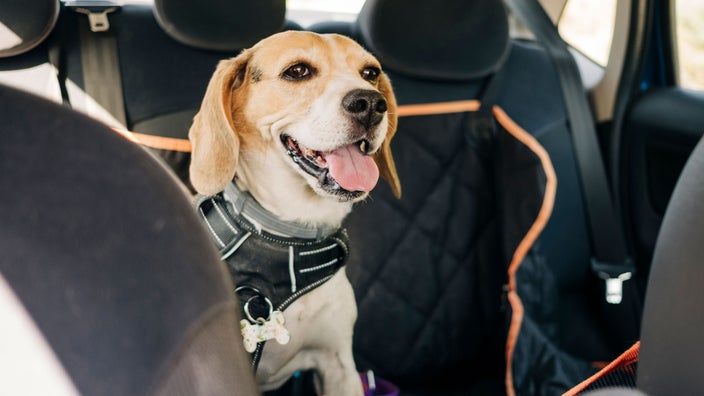
Credit: www.goodrx.com
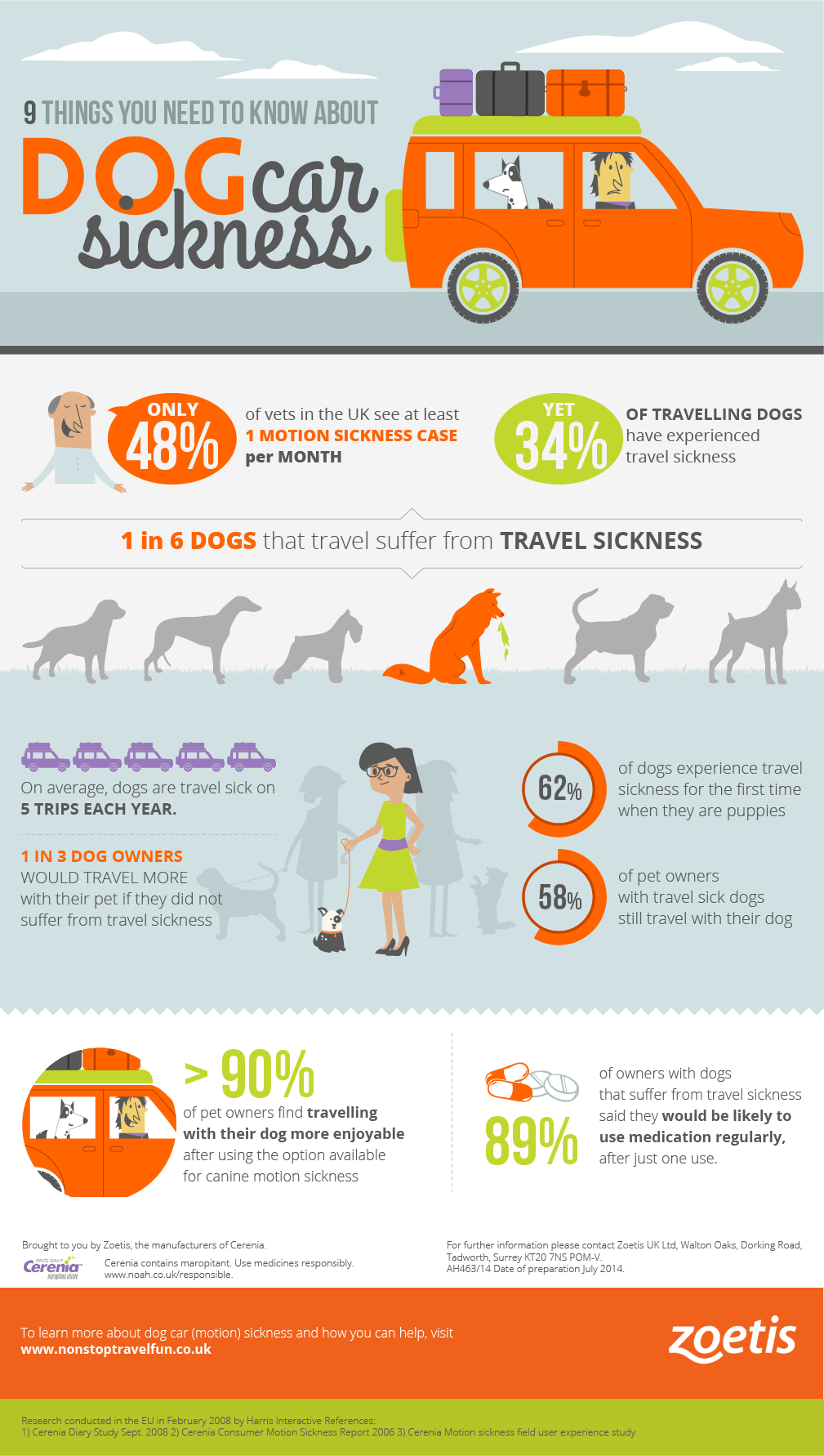
Credit: www.hannegrice.com
Frequently Asked Questions
At What Age Do Dogs Stop Getting Car Sick?
Most dogs outgrow car sickness by the age of one. Puppies are more prone to it.
Do Some Dogs Never Get Over Car Sickness?
Some dogs never fully overcome car sickness. With training and medication, symptoms can be managed. Consult a vet for guidance.
Do Dogs Get Over Travel Sickness?
Yes, many dogs can overcome travel sickness with time, acclimation, and proper treatments. Consult your vet for advice.
How To Desensitize A Dog To Car Rides?
Gradually introduce your dog to the car. Start with short trips and offer treats. Use calming aids if necessary.
Conclusion
Most dogs can outgrow car sickness with time and patience. Consistent training and positive experiences help significantly. Consult your veterinarian for tailored advice. Your furry friend can enjoy car rides eventually. Remember, every dog is unique. Keep trying and stay positive for the best results.
Happy travels with your pet!
- Can I Get in a Taxi Without a Car Seat? - January 26, 2025
- Can I Get Chlamydia From a Toilet Seat? - January 26, 2025
- Can I Get an Uber With a Car Seat? - January 26, 2025

